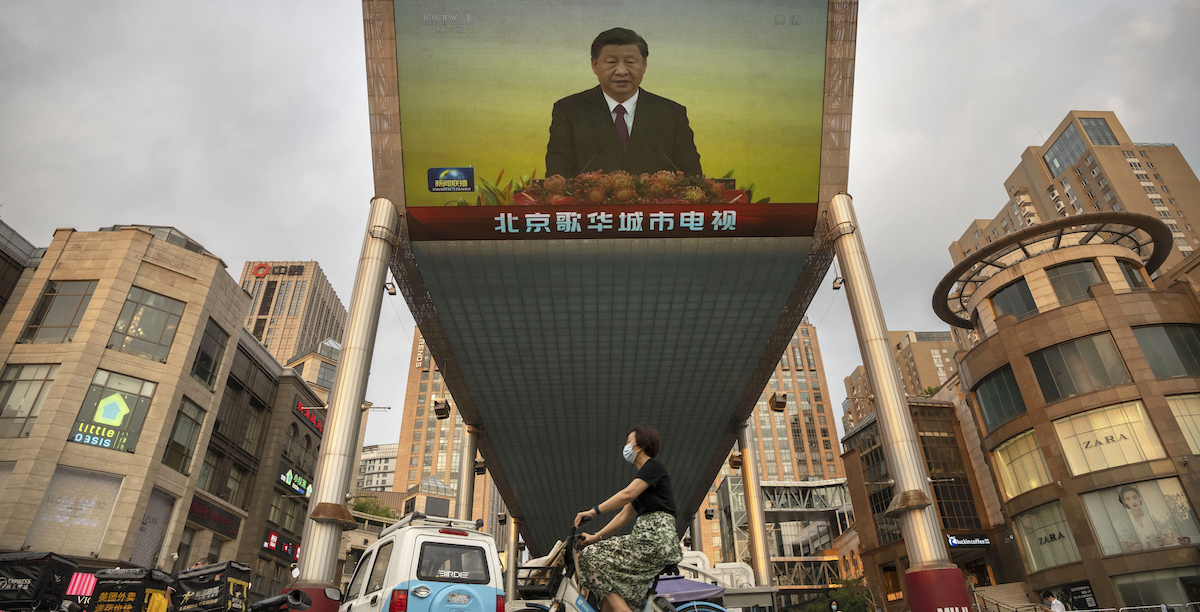On January 1, 1997, Hong Kong, effectively seized by Great Britain in war a century before, reverted to Chinese rule. Only recently liberated from the madness of Mao Zedong’s rule, Beijing promised to preserve Hong Kong’s separate “system” for 50 years.
Alas, the People’s Republic of China (PRC) terminated the political regime based on historic British liberties 27 years early, with passage of the National Security Law in June 2020. The PRC’s increasingly repressive Xi Jinping government created a police state in the Special Administrative Region as suffocating as that on the mainland.
The Human Rights Measurement Initiative’s “Rights Tracker” shows a collapse in Hong Kong’s rating. Explained HRMI: “Hong Kong’s Safety from the State score of 6.5 out of 10 suggests that a significant number of people are not safe from one or more of the following: arbitrary arrest, torture and ill-treatment, forced disappearance, execution or extrajudicial killing.”
The slightest resistance to or even criticism of Beijing or its local agents can lead to prosecution and imprisonment. Legal scholar Alvin Cheung observed: “There’s no end of things that can be brought under the rubric of national security … particularly under the Hong Kong legislation and under what we know of the mainland conception of national security.” In May the Hong Kong Democracy Council estimated that Hong Kong held 1,024 political prisoners. One of the most important symbolic recent changes is suppression of the once annual June commemoration of the Tiananmen Square Massacre.
Xi recently visited Hong Kong to celebrate his brutal achievement, leaving the mainland for the first time since COVID hit. He was greeted at the railway station with a choreographed Mao-style crowd, shouting its welcome. He lauded the Hong Kong’s formal autonomy and claimed that “there is no reason to change such a good system”—while emphasizing that only local Communist Party factotums would rule.
Although the PRC has won the present, it looks like it has lost the future. In a recent survey, just 2% of 18-to-29-year-olds viewed themselves as Chinese. More than three-quarters considered themselves to be Hong Kongers. Almost 9 in 10 supported the now-suppressed political protests and 60% expressed interest in emigrating.
Beijing’s heavy hand did not fall just upon intellectuals. It also hit working people. A report issued last month by the Hong Kong Labour Rights Monitor detailed China’s assault on labor activists and unions. The group noted that “two years into its implementation, the NSL has completely changed the city’s political and civil society landscape.” It was inevitable that labor rights also would be affected by the Chinese Communist Party crackdown. Explained the group: “Trade unions and labor organizations, being an indispensable constituent of the civil society, are predictably one of the major targets of the regime’s relentless political purges.”
The NSL, imposed two years ago, was key. “The legal provisions of the NSL are as savage as the way in which it has been imposed on Hong Kong,” the Monitor’s report detailed. Still, before passage, some local officials who were not consulted on the legislation’s substance or reach predicted it would be displayed merely to cow the population rather than enforced to punish it.
Reality turned out quite different. With the enthusiastic support of the police and sustained acquiescence of the judiciary, the local regime, backed by the PRC, “adopted a sweeping strategy to strengthen the supervision of schools, social organizations, media, and the internet, extending the NSL’s heavy hand to virtually every corner of society”—including the labor sector.
In Hong Kong, like in most other free societies, labor unions play a political as well as an economic role. Explained the Monitor:
Hong Kong’s independent trade unions have played a key role in the city’s democratic movement. The HKCTU, a coalition of more than 90 independent unions representing 145,000 workers, has been critical of the government’s labor and social policies and has organized numerous social actions fighting for worker’s interests and the city’s democratization since its establishment in 1990. It has been an influential member of the Civil Human Rights that helped organize the 2003 rally against Article 23 legislation and the 2019 protests against the extradition bill. The HKCTU also co-operated with 30 independent unions in the attempt to stage a general strike against the NSL in June 2020.
Thus, at the behest of the CCP—which pretends to stand for workers—the regime’s local enforcers targeted labor activists. Former chief executive Carrie Lam’s administration arrested at least 11 labor leaders: “Among them, one was sentenced to 20 months and two weeks in prison, seven were remanded in custody and three were released on police bail.”
The authorities deregistered the General Union of Hong Kong Speech Therapists and froze its funds based on its political activities. Another five unions received official inquiries about their political involvement. For instance, the Hong Kong Journalists Association (HJKA) was interrogated “on their activities, such as movie screenings, book launches, social media posts during the 2019 Democracy Movement and the annual report on press freedom. The HKJA was also required to explain how those activities were consistent with [Hong Kong law] and the union’s objectives or rules.”
The local authorities accepted similar activities in the past. This turnaround has been driven by Beijing. Concluded the Monitor: “It is obvious that the government has reweaponized the colonial laws to silence Hong Kong’s independent labor organizations that are critical of the government and the CCP.”
The NSL triggered a cascade of self-censorship, with opposition groups disbanding, activists fleeing abroad, booksellers culling their stocks, media organizations closing, and ordinary people emigrating. Much the same is happening with labor unions. More from the Monitor’s report:
Amid the fast-deteriorating political environment, many trade unions decided to disband or stop operations. 62 trade unions cancelled their registration through dissolution or at their own request in 2021, compared with only seven over the period between 2018 and 2020. Some labor organizations not registered under the [law] also decided to disband or stop their operations in the city, for example the Asia Monitor Resource Centre. [references omitted]
Unfortunately, the future does not look much better, as the Hong Kong Labour Rights Monitor warns:
Article 9 of the NSL requires the government to strengthen the supervision and regulation over matters concerning national security relating to trade unions. The Labor Department plans to create a new directorate post to lead the additional work. The government is also considering amending [existing law] to bar those convicted of national security offences from being union officers for five years and to introduce any necessary provisions to strengthen the regulation of trade unions.
Like almost every other area of Hong Kong life, space for dissent is disappearing. Lamented the Monitor: “The fast shrinking civil society space has left Hong Kong’s independent trade union movement facing an existential threat.” It seems impossible for a free labor movement to survive in an increasingly unfree society.
In Xi’s view, his government’s brutal crackdown “was the beginning of true democracy in Hong Kong.” The CCP is in control. Hong Kong’s uniquely liberal and free system is no more. A quarter century after the territory’s return to China’s control, the shift to “one country, one system” is complete. Hopefully, however, Xi will not have the last word on the future of Hong Kong.

